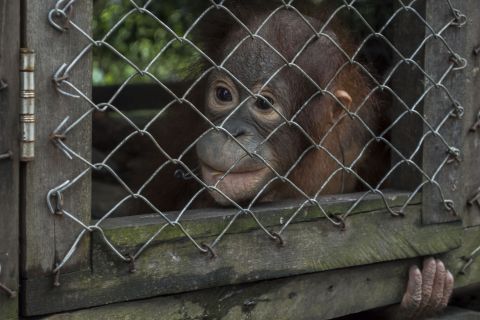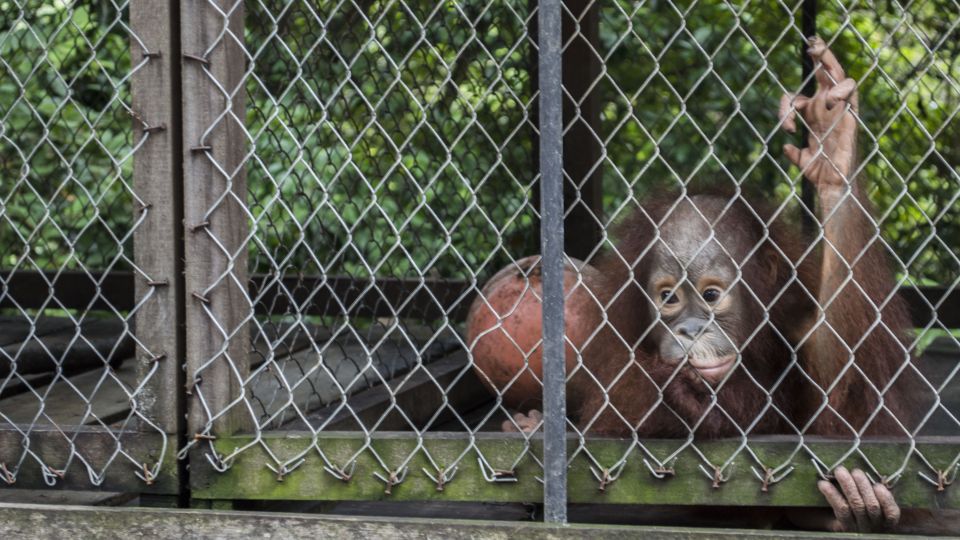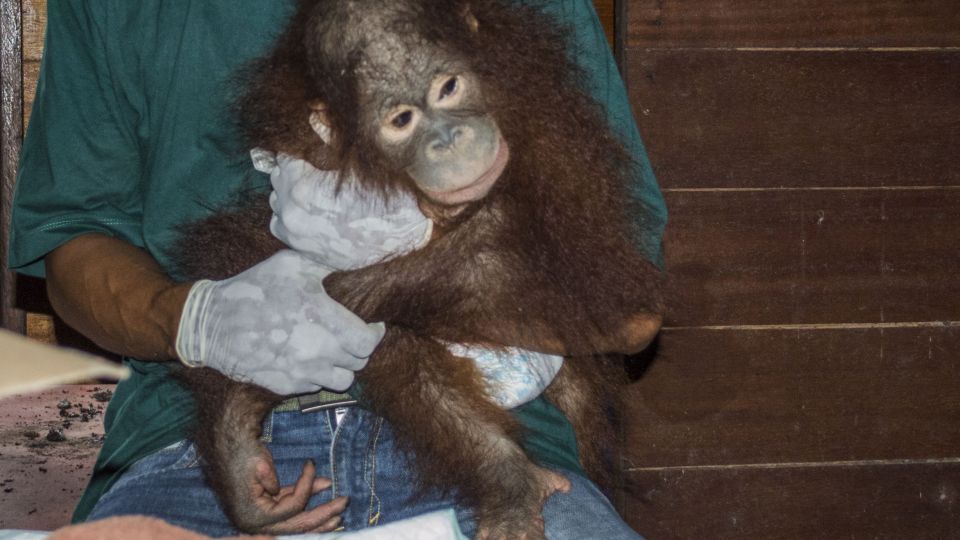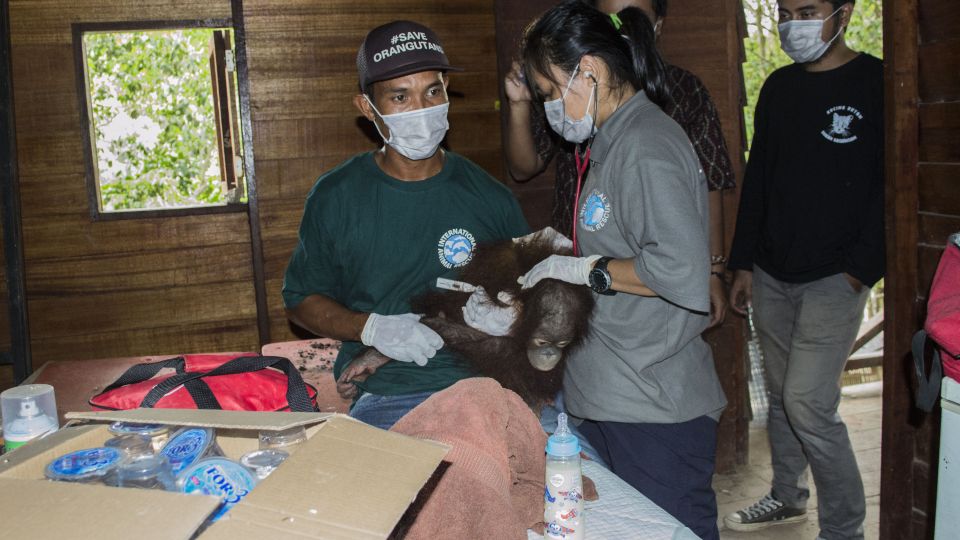
Our team in Indonesia and officials from the Natural Resources Conservation Centre of West Kalimantan rescued a baby orangutan from Sinka Zoo in Jalan Malindo, Coral Bay in Singkawang Regency, West Kalimantan.
The rescue took place on the 25th of November after the team received information that there was a sick baby orangutan at the zoo.
The young male named Badul was reported to have a high temperature and so our medical team and members of BKSDA Kalbar travelled to the zoo to give him emergency medical treatment. Badul, who is about 18 months old, had been at the zoo since 5 November 2017. Our vets’ medical examination indicated that Badul was suffering from a problem with his respiratory system and was having difficulty breathing. “We can detect abnormal sounds coming from his lungs and he is also coughing quite a lot,” said our vet Dr Temia. ”He needs a more thorough examination to identify exactly what the problem is,” she added.

Humans and apes are genetically very similar and consequently are very susceptible to picking up human diseases. On many occasions our team in Indonesia has rescued orangutans that have fallen ill while in the care of human beings.
And some of the diseases they were suffering from actually came from the people keeping them captive. Some diseases passed from humans to young orangutans can kill them if left untreated.
“Ordinarily, orangutans live in the wild, high in the trees in the forest and far away from human beings. So they are not exposed to the illnesses that afflict human beings,” explained Dr Adi Irawan, our Operations Manager in Indonesia.

“When they are kept by humans, they are vulnerable to diseases such as Tuberculosis which can be transmitted between humans and animals. Such diseases are very dangerous for orangutans and often prove fatal.
That’s why the quarantine process is very important for orangutans coming into our rehabilitation centre.
As vets we recommend that people don’t ever keep orangutans because the risk of disease transmission is too great and poses a danger to both animals and people.”
Our team and baby orangutan Badul spent one night at the BKSDA Kalbar to break up the journey to our centre in Ketapang. The vets accompanying him kept a close eye on Badul to ensure he was eating and drinking and wasn’t too stressed by the move.

They finally reached our rescue centre when night was falling and settled Badul into the quarantine quarters for baby orangutans.
He will spend eight weeks in quarantine and undergo two complete medical checks before he is able to meet any of the other orangutans at the centre. This is to ensure that he is healthy and not carrying any contagious diseases that could jeopardise the health of the other orangutans.
Karmele Llano Sanchez, our Programme Director in Indonesia, said: “Wild baby orangutans like Badul still have a chance of returning to the forest after undergoing the quarantine and rehabilitation process at our centre. Orangutans do not belong in captivity and Badul deserves the chance to return to his natural habitat.”
Through its own social media outlets BKSDA Kalbar made an official appeal to the people of West Kalimantan not to keep wildlife as pets. They urged anyone who knew of a protected wild animal being kept as a pet to report it to the BKSDA so action could be taken to confiscate it.

